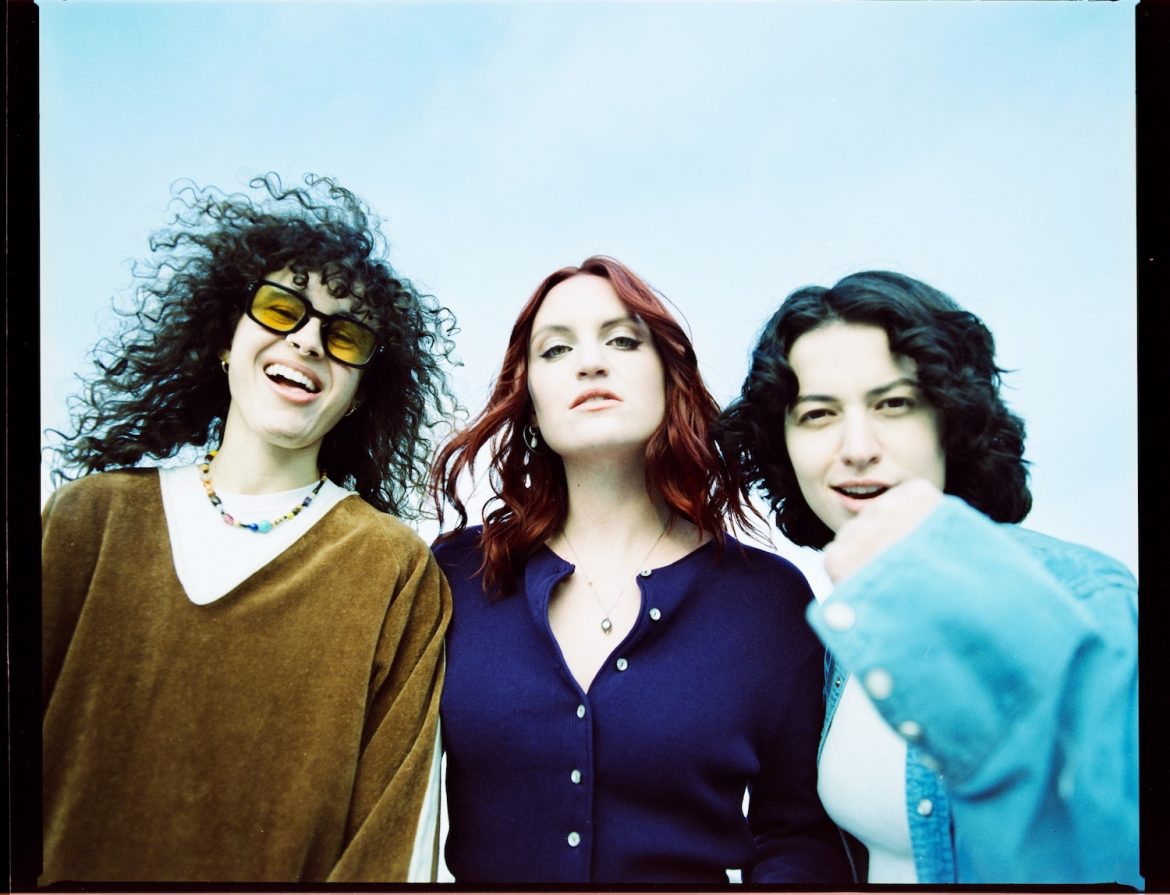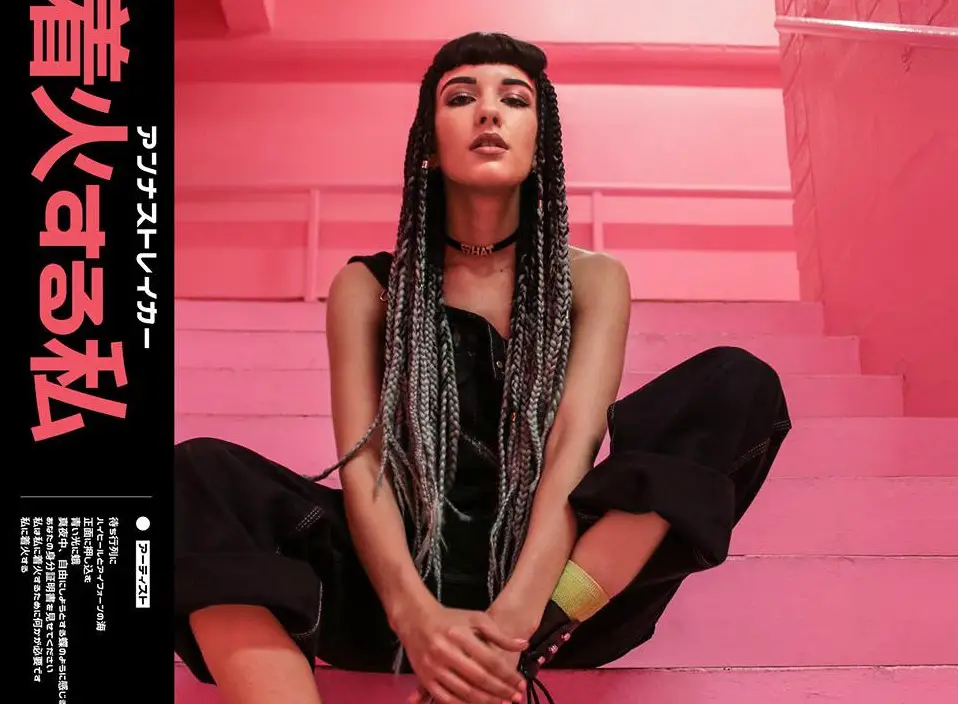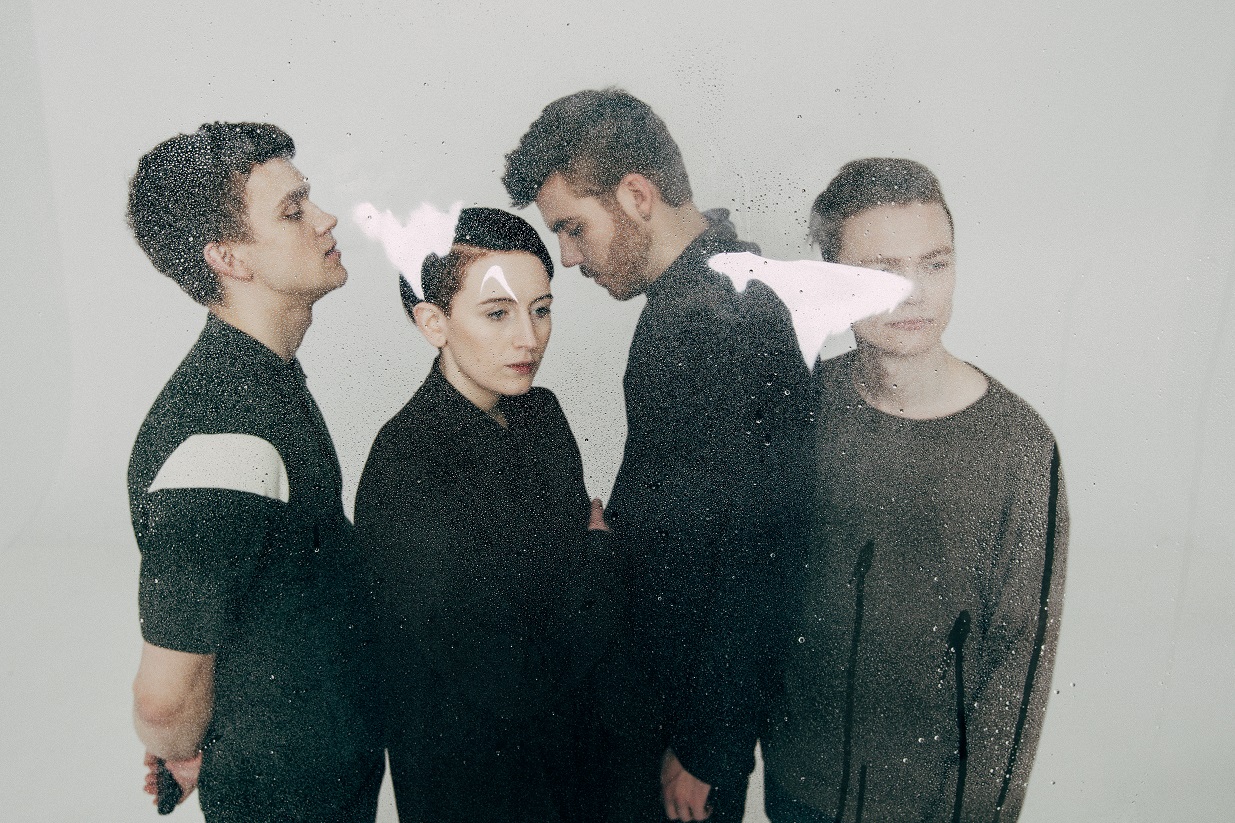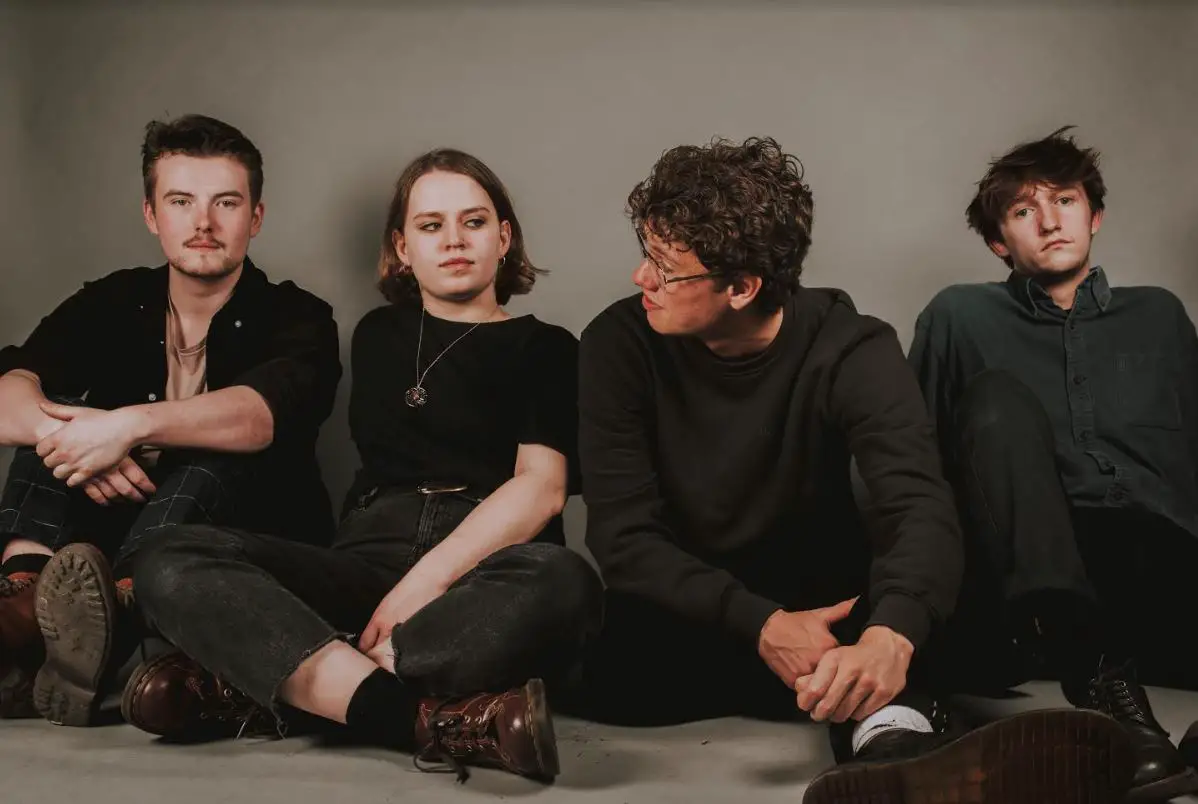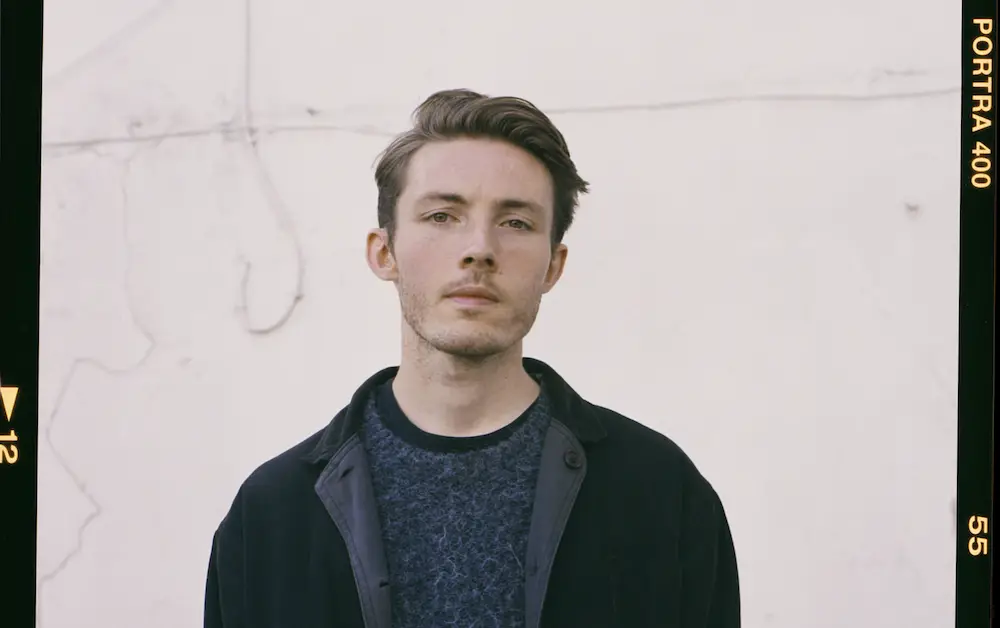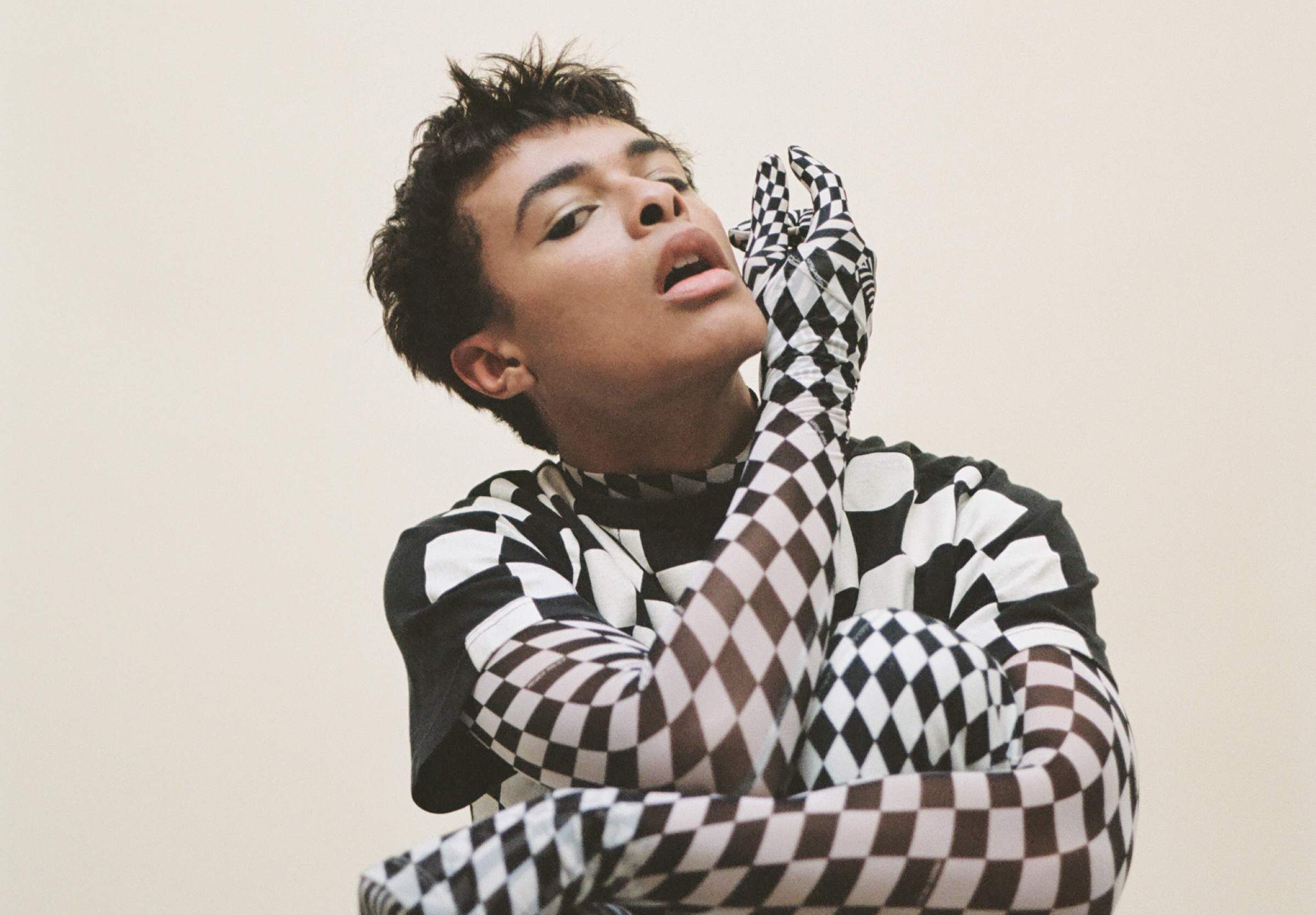Powerful and personal, MUNA’s highly anticipated eponymous third album is the most joyful and the most vulnerable work of the band yet.
Stream: ‘MUNA’ – MUNA
I just knew that my perspective was to make an all killer, no filler, no faffing about album of bangers. If it doesn’t bang, it’s not going on the album!
MUNA is no longer the band you once knew.
The indie-pop trio composed of Katie Gavin, Josette Maskin, and Naomi McPherson have been going through changes, and their self-titled record tells the story, chapter and verse. Thanks to an infectious chorus and social media algorithms, the band was launched further into the mainstream with “Silk Chiffon.” The rise left long-time fans scratching their heads as the emotionally devastating group they know and love was labeled as fun queer easy-listening.
More adventurous yet every bit as heartbreaking, MUNA ushers in a new dawn for the group. MUNA is a grown-up album. A decade of growing together as a band has left the three with new tricks up their sleeve.
Sun down and I’m feeling lifted
Downtown, cherry lipstick
Watch her silk dress dancing in the wind
Watch it brush against her skin
Makes me wanna try her on
Like, life’s so fun, life’s so fun
Got my mini skirt and my rollerblades on
Bag on my side ’cause I’m out ’til dawn
Keeping it light like silk chiffon
Life’s so fun, life’s so fun
Don’t need to worry about no one
She said I got her if I want
She’s so soft like silk chiffon
Silk chiffon
That’s how it feels, oh, when she’s on me
Silk chiffon
That’s how it feels, oh, when she’s on me
– “Silk Chiffon,” MUNA x Phoebe Bridgers
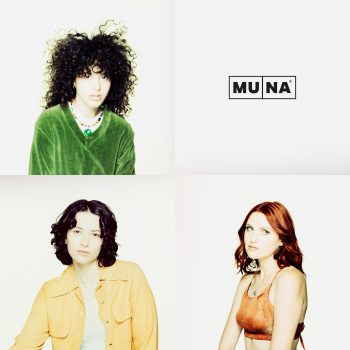
MUNA begins with a series of confessions that would make your grandmother blush. Following gay anthem “Silk Chiffon” is “What I Want,” an explosion of desire. Bold and brash, the track glimmers with confidence. Gavin holds her head high as she cries, “I want the full effects, I want to hit it hard, I want to dance in the middle of a gay bar.”
Throwing the caution found on their previous two records to the wind, Gavin shrugs decisively over an unrelenting electronic beat, “It’s just what I want.” This record introduces a different body of sound: adventurous, fearless, but just as enthralling.
When I go out again
I’m gonna drink a lot
I’m gonna take a shot
Cause that’s just what I want, want, want
What I want, want, want, hmm
And when I see my friend
Put something on her tongue
I’m gonna ask for one
Cause that’s just want I want, want, want
What I want, want, want
I’ve spent way too many years not knowing what
What I wanted, how to get it, how to live it and now
I’m gonna make up for it all at once
Cause that’s, that’s just what I want
I want the full effects
I want to hit it hard
I want to dance in the middle of a gay bar
That’s what I want, there’s nothing wrong, with what I want
Vulnerability comes less in grand soliloquies and more in mustard seeds.
Take “Home By Now,” for instance. The track is big sister to Saves the World’s “Stayaway,” an introspective smattering of “what if’s” over a staggering arrangement. Gavin wonders aloud, “Would we have turned a corner if I had waited? Do I need to lower my expectations? If we kept heading in the same direction, would we be home by now?” The low buzz of the verse and Gavin’s signature gravel ache like a bruise. The bridge explodes with half-formed petitions, questions that are much far too simple to answer. Upcoming tracks “Kind of Girl” and “Handle Me” revel in this simplicity.
These tracks give a piece of themselves away, a stillness in the epic sonic storm of the record. The rollercoaster doesn’t end there. “No Idea” burns fantasy into a fire with electric guitar riffs and electronic bridges. The silver-bell melody of “Loose Garment” leaves wounds with Gavin’s whistling falsetto. The strings bring the reverie down to earth, rippling through Gavin’s whisper: “Used to wear my sadness like a choker, yeah it had me by the throat. Tonight I feel I’m draped in it like a loose garment, I just let it flow.” Acceptance bleeds into the album’s closer “Shooting Star,” where Gavin looks up at the sky and wishes on a love that is meant to last.
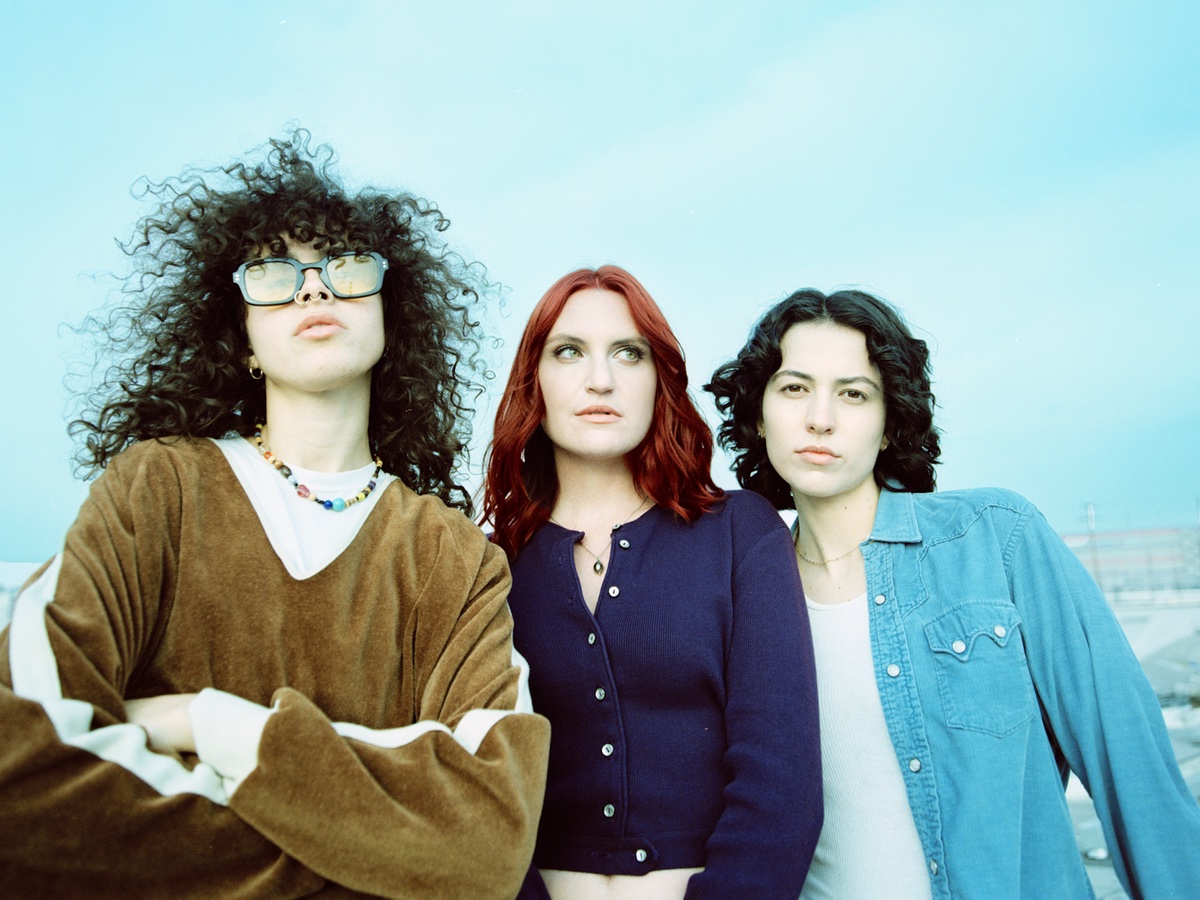
MUNA is a snapshot of the past two years.
With a levity that can only come from putting your roots down, the band returns with what is important to them right now. Taking back the doubts and guilt and trading them for self-assurance and affirmations, a new sound is born from a life that is not better or worse, but different. Atwood Magazine sits down with MUNA to discuss why living life on purpose is important, and why it’s all we have.
It’s just so important to us at this point in our lives to seek joy, to perform joy as a means of attempting to feel it. It’s been powerful for us in our personal lives: We are all people who really do struggle.
— —
:: stream/purchase MUNA here ::
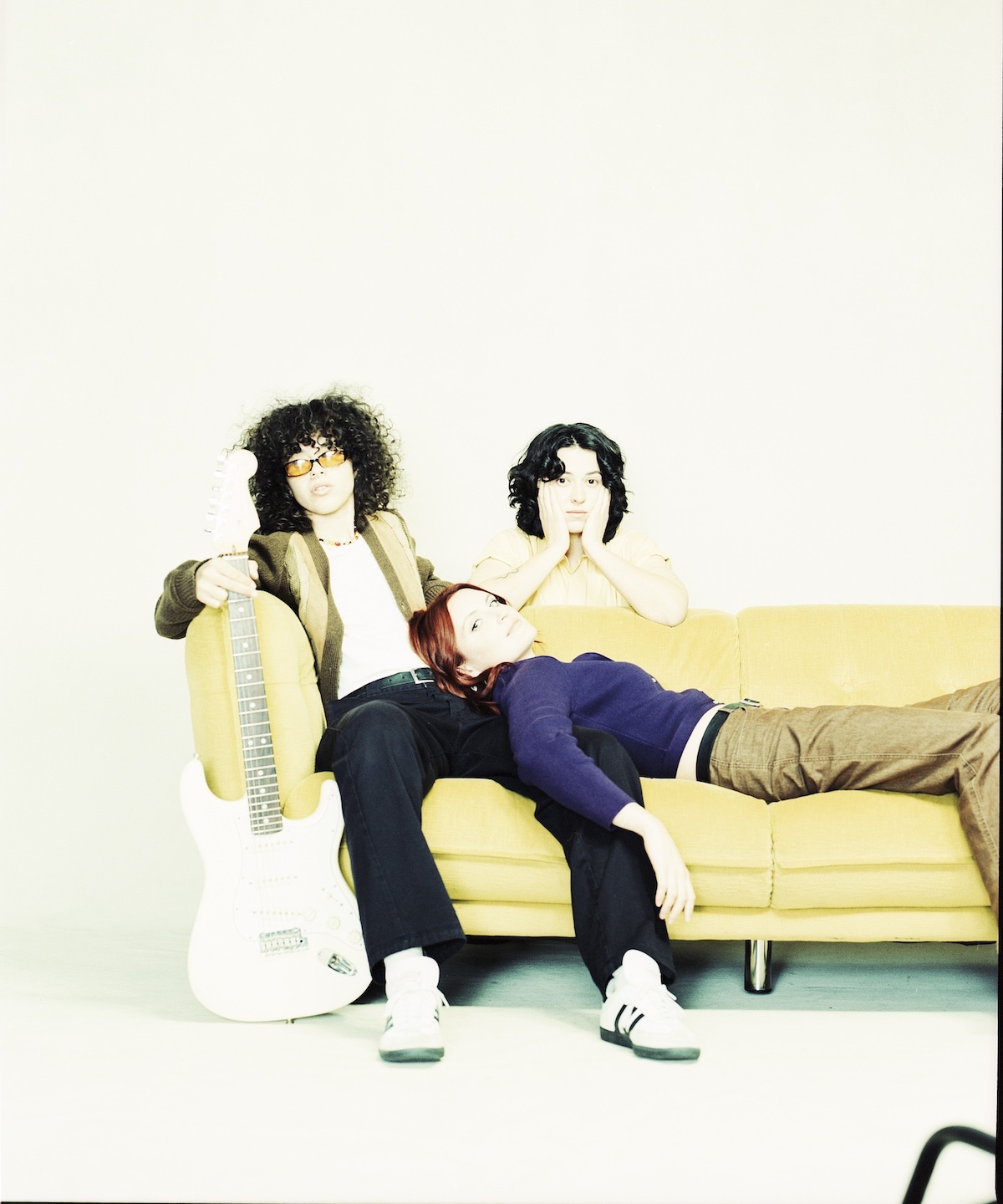
A CONVERSATION WITH MUNA

Atwood Magazine: I want to start off by talking about the main theme of the record. There’s this emphasis on identity - who am I and what do I want? Why this and why now?
Naomi McPherson: To be honest, it’s the point that we are all at in our lives, we all happen to resonate with songs where this theme is the connective tissue. We are all in our late twenties, and life is starting to kick your ass. It starts to hit you hard when you realize you’re starting to be a grown up and you need to figure out the kind of person you want to be. Embracing aspects of yourself that you’ve had trouble embracing in the past hopefully starts to happen when you’re a little older.
Your last album, Saves the World was this heart wrenching, “crushed under the weight of the world” deal. MUNA is a “taking back your life” record. What changed personally in the three of you leading up to this different and daring release?
Naomi McPherson: The first two definitely had a “crushed under the weight of your own life and your own shit” quality to them. It’s not to say that we still aren’t crushed under the weight of our own shit and the state of the world – they compound and make life difficult. It’s just so important to us at this point in our lives to seek joy, to perform joy as a means of attempting to feel it. It’s been powerful for us in our personal lives. We are all people who really do struggle, and you have to put your happiness first at a specific point. You have to try to help yourself a bit. It’s something we’re still going through!
We are all people who really do struggle, and you have to put your happiness first at a specific point.
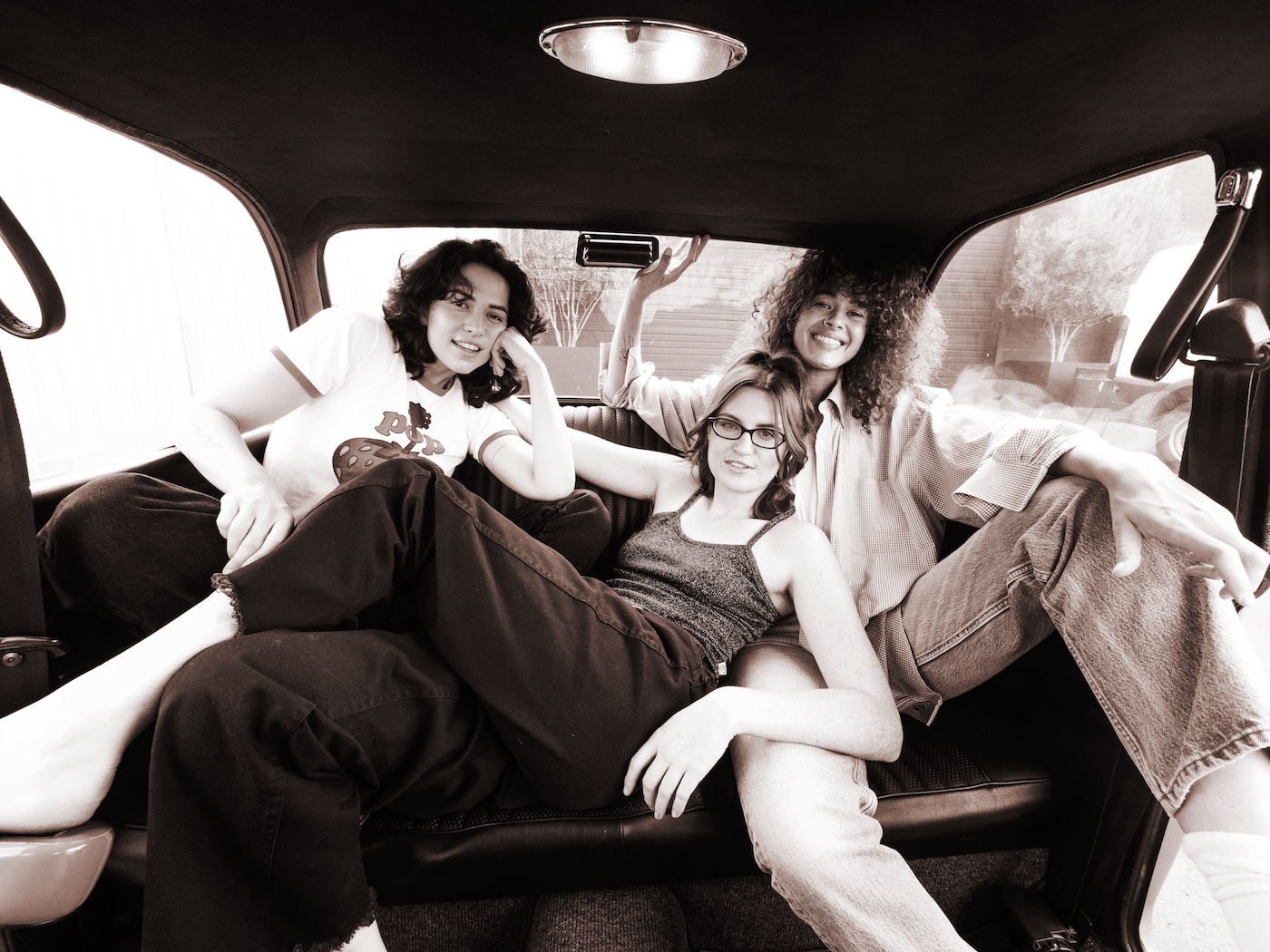
Right. I love the emphasis on “choice.” It’s really special for listeners to hear honest and intentional stories. It’s an empowering narrative in an industry that can fabricate real stories.
Katie Gavin: One of the words we used a lot when talking about this album was “agency.” I remember even on Saves The World, we were on a manic spiral trying to make self-help exercise workbooks. One of them was some type of a “willingness barometer.” Sometimes we know what choice is good for us but we can’t do it that day. So having a barometer helped. Am I willing to start a fulfilling creative project? No. Am I willing to get a glass of water? Maybe. There is so much we are powerless over, but finding those moments where you do have power is really important.
I want to talk about the new musical choices. There are no delicate choices on this record! From the hyperpop bridge on “No Idea” to string arrangements on “Kind of Girl” and “Loose Garment.” Where did this creative freedom come from?
Josette Maskin: We try to let the songs dictate where the freedom lies. When we were making the second record, we worked with Mike Crossey and he would always tell us that the modern band is genreless. We try to live by that guide because a song will tell you what it should sound like, which is the most important thing for us. We’ve also been doing this for so much longer and are learning to be better musicians. That allows us to make more intentional choices that lead to more exaggerated musical motifs than previously heard.
When I find myself in a project, there’s a rule of thumb or lesson I keep coming back to. Were there any ideas that kept coming back during the writing and recording processes?
Naomi McPherson: I just knew that my perspective was to make an all killer, no filler, no faffing about album of bangers. If it doesn’t bang, it’s not going on the album! I knew I wanted it to be short and for each song to be able to stand on its own as a great song.
Katie Gavin: I can hear Josette’s voice in my head saying “no more” when we’re done for the day in the studio. I always want to keep pushing because of my own impatience. I think one of the reasons that this album is so creatively free is from the joy of being left the fuck alone for such a long time! Naomi and Jo are good at knowing that if the vibes are right, we work on it. And if they’re not, go watch TV. It was annoying to me at the time, but I think it was key to making the album as good as it is, and not something I would have been able to do on my own.
You've been friends for a decade. How did your relationships with each other as friends and bandmates evolve during the development of this album?
Naomi McPherson: Due to the nature of the pandemic and trying to be as safe as possible, once we opened up our pods from just us and our partners to us the band, we spent a whole lot of time together. Over the past five or six years, from the time music started to get serious for us, we’ve gotten very close. They do feel like my family, it’s what I imagine having a sibling is like. We definitely fight less though. (laughs) We are constantly learning and growing from one another.
Josette Maskin: We’ve gotten very good at communicating, almost to a fault. We are emotionally unloading all the time. There’s a level of intimacy that I think not everyone has. We have it because of how long we’ve been together and how much work we’ve put into being together. We don’t let things lie, we talk so everyone feels that they are heard. I think the music sounds the way it does because we try to collaborate and let everyone’s voice be heard not only in the music, but also in the studio.
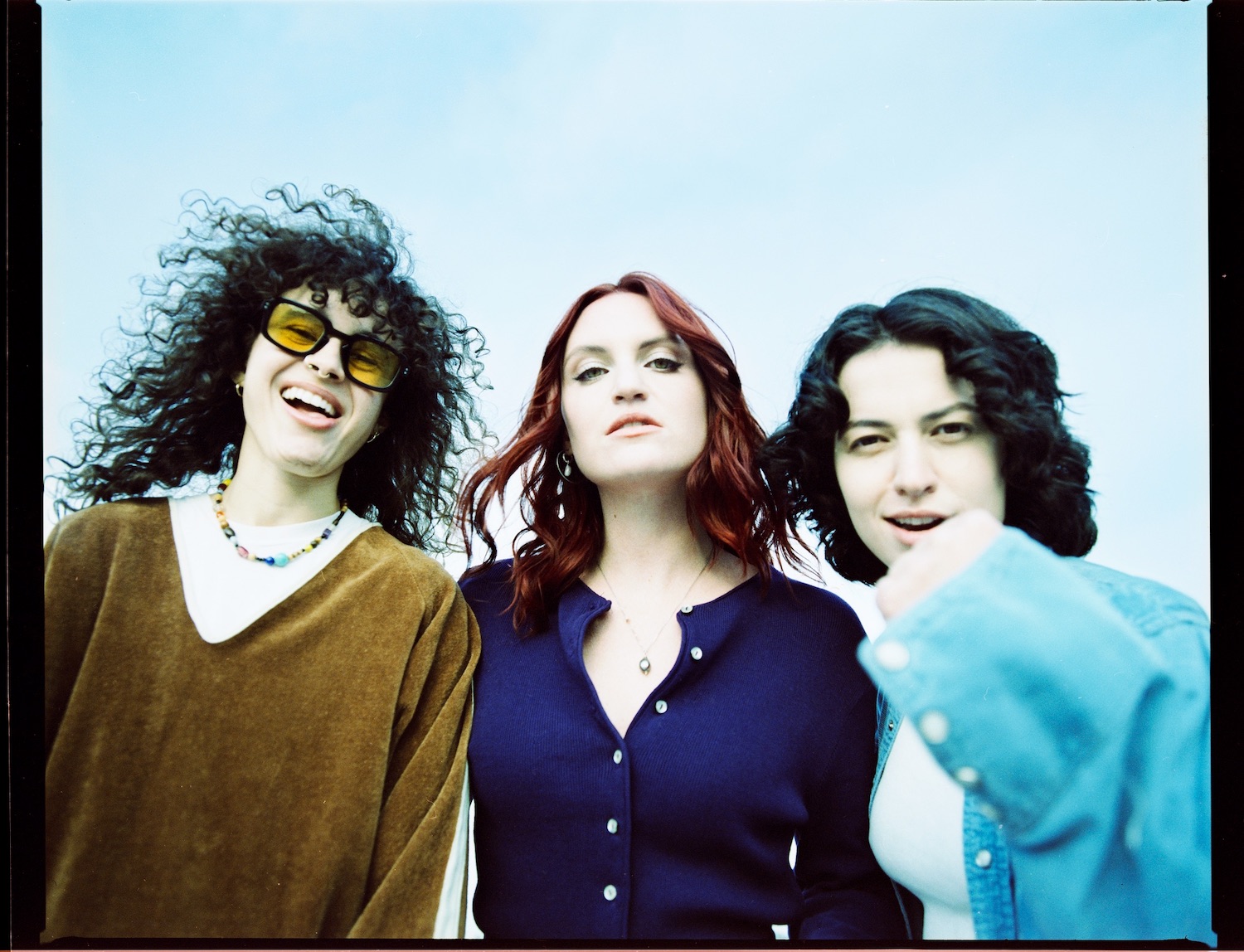
Embracing aspects of yourself that you’ve had trouble embracing in the past hopefully starts to happen when you’re a little older.
I was fascinated by “What I Want” and “No Idea.” These songs in particular reinforce desire. Why is it so important to not only feel but also reveal your desires in an unapologetic way?
Katie Gavin: We are queer people who were kids in the nineties. We were used to the idea that certain kinds of desires should remain in the realm of longing. For a long time, my sexuality was just longing. “No Idea” is so funny, I have a friend who called it the abstinence album. There’s something very Christian about that song. (laughs)
Totally. Like private school girl Christian.
Katie Gavin: To me, it’s dirtier because it’s like that. It probably does tie into my Catholic upbringing. (laughs) It’s saying, “I do want you, but this needs to happen in a way that works for me.” Like, I have feelings for you and also want to have sex with you. But “What I Want” is more, “I want a hot person.” Those are different desires, but I think it’s cool to articulate them specifically. The idea is that you can have those things.
Naomi McPherson: Being a young person in the early 2000s and being non-white, very deeply closeted, and so unlike the beauty standard, I didn’t think I was ever a person who could be desired or have desires. I always thought that everything that I’m seeing isn’t going to happen for me, so better figure something else out! I presented myself as someone with no desires, someone who was around to be funny and be entertaining, and not have an interior life that people know about. That is just an unsustainable outlook on life and is also simply not true. Knowing that you as a person are allowed to have desires can take a lot of anti-oppression work before you can actually feel at home in that feeling. I don’t know if I feel at home in that yet, but I’m working on it.
We were used to the idea that certain kinds of desires should remain in the realm of longing.
What are your hopes for this album and this new era of MUNA?
Josette Maskin: If I’m being totally honest, I just want our business to be able to sustain itself. It’s really hard to be a band in 2022 when Spotify and Apple Music exist. I want to find ways to sustain ourselves and make this fully our careers. I want to play bigger venues and go see fans in places we never get to go! We wanted to tour Europe this fall and winter, but because of the expenses we couldn’t make it work. We want to connect with those fans and see those people.
— —
You’re gonna say that I’m on a high horse
I think that my horse is regular-sized
Did you ever think maybe
You’re on a pony
Going in circles on a carousel ride?
You’re gonna say I asked for the moon, I
Think it was you with your head in the sky
All that I wanted was somebody honest
Living for more than their next good time
You say that you wanna change
Well, I hope you get everything you want
Everything you want
You say that you need relief
Well, I hope you get everything you need
Everything but me
– “Anything But Me,” MUNA
— —
:: stream/purchase MUNA here ::
— — — —

Connect to MUNA on
Facebook, Twitter, Instagram
Discover new music on Atwood Magazine
? © Isaac Schneider
:: Stream MUNA ::

